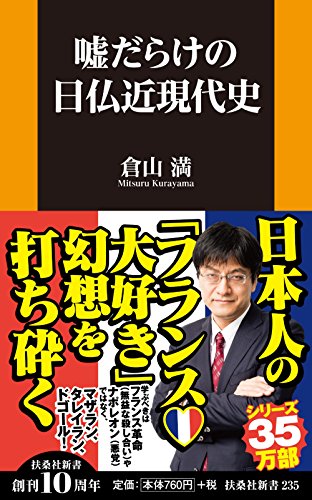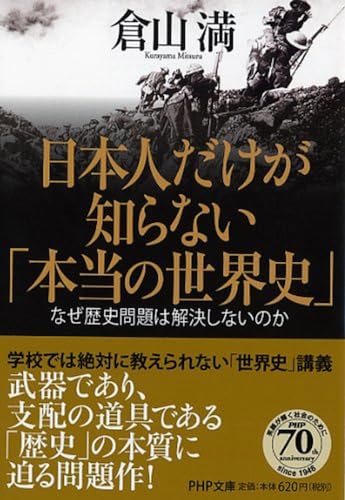13 0 0 0 「青年」吉野作造の民本政治観
- 著者
- 倉山 満
- 出版者
- 関西法政治学研究会
- 雑誌
- 憲法論叢 (ISSN:1343635X)
- 巻号頁・発行日
- vol.17, pp.91-111, 2010
It is said that Yoshino Sakuzo was a standard-bearer of the democracy of Japan. However, it is assumed that it takes advantage of an expansionist current of the times in the youth, and nationalism speech and behavior was done by him. A current research is exaltation of the nationalism done when he is young and it is insisted that thought be fundamentally changed. I wonder whether the nation was existence that can be thrown away however for Yoshino. No, it is not so. Even if the insistence was changed for Yoshino according to the change in the situation, the nation outlook that existed in the basis was immovable. In this thesis, whether Yoshino really changed thought is verified through the key words. These are "Nation State", "Constitutionalism", and "Election and party politics". Moreover, there are "Modernist", "British type monarch system", and "Security" importance in "Constitutionalism".
12 0 0 0 吉野作造における憲法習律
- 著者
- 倉山 満
- 出版者
- 関西法政治学研究会
- 雑誌
- 憲法論叢 (ISSN:1343635X)
- 巻号頁・発行日
- vol.14, pp.107-131, 2007
Yoshino Sakuzo is often called "the most significant political scientist in Taisyo era". His legal logic and his work should not be ignored. With a view of Yoshino as a political scientist, we must pay great attention to work of this great jurist. Yoshino strongly demanded Democracy in Japan. Especially he insisted on the party government system, because he wanted to reflect the public opinion thorough the general election. He also made an effort to establish the convention of the constitution. Although the corruption of two major parties disappointed him and most Japanese people, normal constitutional practice was repeated and put an emphasis on. Finally, Yoshino's ideal did not come true. From 1932 to 1945, normal constitutional practice was abolished. However, every cabinet could not ignore the House of Representative. The convention of the constitution, in which the cabinet distrusted by the House of Representative selects the choice of resignation or the dissolution, remained. Yoshino idealized british constitutional government, and demanded the practice and the convention in Japan. Though he never admired american constitutional code, Yoshio is nowadays considered Wilsonian or Wilsonist. We must correct such an evaluation of him.
7 0 0 0 OA 明治新政府の国境画定交渉
- 著者
- 倉山 満
- 出版者
- 日本法政学会
- 雑誌
- 法政論叢 (ISSN:03865266)
- 巻号頁・発行日
- vol.50, no.1, pp.122, 2013 (Released:2017-11-01)
3 0 0 0 OA 憲法習律としての「憲政の常道」
- 著者
- 倉山 満
- 出版者
- 関西法政治学研究会
- 雑誌
- 憲法論叢 (ISSN:24330795)
- 巻号頁・発行日
- vol.11, pp.47-68, 2004-12-20 (Released:2018-01-10)
Today, Normal Constitutional Practice (Kensei no Jodo) is disregarded by almost constitutionalist in Japan. But it was built as Constitutional Convention. It triumphed several ordeals. In fact, a party government was stronger than any other organs. The privy Council, the House of Lords, the bureaucrats and the military authorities that should have veto could not overthrow of the cabinet without help by the Opposition. The strongest veto group was the House of Representatives. Its political resource was power of command by cabinet that includes the Ministry of Finance. The elder statesman Saionji protected the customs. Though it was indicated that parliamentary government was crushed by pressure, the essence is suicide of two major parties, and it disturbed constitutional government in The Empire of Japan.
2 0 0 0 OA 満州事変における法的問題
- 著者
- 倉山 満
- 出版者
- 関西法政治学研究会
- 雑誌
- 憲法論叢 (ISSN:24330795)
- 巻号頁・発行日
- vol.9, pp.67-92, 2002-12-23 (Released:2018-01-10)
Almost analysts consider that Manchurian incident was SINRYAKU (侵略=cruel aggression) of Japan which was caused by Kwantung Army's runaway. There have been few legal studies about Manchurian incident. Japan was blamed because he broke the Nine-Power Treaty, the Kellogg-Briand Pact, and the Convenant of the League. But Japan's act is not injustice in international law. Before Manchurian incident, the Republic of China could not rule Manchuria. The act of Kwantung army is naturally illicit. But eventually, it was evasion. We must analyze Manchurian incident not only by perspective of politics but also by perspective of international and domestic law.
2 0 0 0 満州事変における法的問題
- 著者
- 倉山 満
- 出版者
- 関西憲法研究会
- 雑誌
- 憲法論叢 (ISSN:1343635X)
- 巻号頁・発行日
- no.9, pp.67-92, 2002-12-23
Almost analysts consider that Manchurian incident was SINRYAKU (侵略=cruel aggression) of Japan which was caused by Kwantung Army's runaway. There have been few legal studies about Manchurian incident. Japan was blamed because he broke the Nine-Power Treaty, the Kellogg-Briand Pact, and the Convenant of the League. But Japan's act is not injustice in international law. Before Manchurian incident, the Republic of China could not rule Manchuria. The act of Kwantung army is naturally illicit. But eventually, it was evasion. We must analyze Manchurian incident not only by perspective of politics but also by perspective of international and domestic law.
1 0 0 0 嘘だらけの日仏近現代史
1 0 0 0 OA 「青年」吉野作造の民本政治観
- 著者
- 倉山 満
- 出版者
- 関西法政治学研究会
- 雑誌
- 憲法論叢 (ISSN:24330795)
- 巻号頁・発行日
- vol.17, pp.91-111, 2010-12-24 (Released:2018-01-10)
It is said that Yoshino Sakuzo was a standard-bearer of the democracy of Japan. However, it is assumed that it takes advantage of an expansionist current of the times in the youth, and nationalism speech and behavior was done by him. A current research is exaltation of the nationalism done when he is young and it is insisted that thought be fundamentally changed. I wonder whether the nation was existence that can be thrown away however for Yoshino. No, it is not so. Even if the insistence was changed for Yoshino according to the change in the situation, the nation outlook that existed in the basis was immovable. In this thesis, whether Yoshino really changed thought is verified through the key words. These are "Nation State", "Constitutionalism", and "Election and party politics". Moreover, there are "Modernist", "British type monarch system", and "Security" importance in "Constitutionalism".
1 0 0 0 OA 吉野作造における憲法習律
- 著者
- 倉山 満
- 出版者
- 関西法政治学研究会
- 雑誌
- 憲法論叢 (ISSN:24330795)
- 巻号頁・発行日
- vol.14, pp.107-131, 2007-12-26 (Released:2018-01-10)
Yoshino Sakuzo is often called "the most significant political scientist in Taisyo era". His legal logic and his work should not be ignored. With a view of Yoshino as a political scientist, we must pay great attention to work of this great jurist. Yoshino strongly demanded Democracy in Japan. Especially he insisted on the party government system, because he wanted to reflect the public opinion thorough the general election. He also made an effort to establish the convention of the constitution. Although the corruption of two major parties disappointed him and most Japanese people, normal constitutional practice was repeated and put an emphasis on. Finally, Yoshino's ideal did not come true. From 1932 to 1945, normal constitutional practice was abolished. However, every cabinet could not ignore the House of Representative. The convention of the constitution, in which the cabinet distrusted by the House of Representative selects the choice of resignation or the dissolution, remained. Yoshino idealized british constitutional government, and demanded the practice and the convention in Japan. Though he never admired american constitutional code, Yoshio is nowadays considered Wilsonian or Wilsonist. We must correct such an evaluation of him.
1 0 0 0 IR 清洲事変期幣原外交の再検討──宣伝概念の欠落と外交努力の成果を鍵として──
- 著者
- 倉山 満
- 出版者
- 国士舘大学日本政教研究所
- 雑誌
- 政教研紀要 (ISSN:09167420)
- 巻号頁・発行日
- no.27, 2005-03
1 0 0 0 OA 憲法習律としての「憲政の常道」
- 著者
- 倉山 満
- 出版者
- 関西憲法研究会
- 雑誌
- 憲法論叢 (ISSN:1343635X)
- 巻号頁・発行日
- no.11, pp.47-68, 2004-12-20
Today, Normal Constitutional Practice (Kensei no Jodo) is disregarded by almost constitutionalist in Japan. But it was built as Constitutional Convention. It triumphed several ordeals. In fact, a party government was stronger than any other organs. The privy Council, the House of Lords, the bureaucrats and the military authorities that should have veto could not overthrow of the cabinet without help by the Opposition. The strongest veto group was the House of Representatives. Its political resource was power of command by cabinet that includes the Ministry of Finance. The elder statesman Saionji protected the customs. Though it was indicated that parliamentary government was crushed by pressure, the essence is suicide of two major parties, and it disturbed constitutional government in The Empire of Japan.
1 0 0 0 関東軍統制と「協力内閣」運動の挫折
- 著者
- 倉山 満
- 出版者
- 中央大学
- 雑誌
- 中央史学 (ISSN:03889440)
- 巻号頁・発行日
- vol.22, pp.92-109, 1999-03
1 0 0 0 OA 満洲事変に対する若槻内閣の対応─元老と宮中の動向を中心に─
- 著者
- 倉山 満
- 出版者
- 国士舘大学日本政教研究所
- 雑誌
- 政教研紀要 (ISSN:09167420)
- 巻号頁・発行日
- vol.22, 1998-01
1 0 0 0 明治新政府の国境画定交渉
- 著者
- 倉山 満
- 出版者
- 日本法政学会
- 雑誌
- 法政論叢 (ISSN:03865266)
- 巻号頁・発行日
- vol.50, no.1, 2013
1 0 0 0 満洲事変に対する若槻内閣の対応--元老と宮中の動向を中心に
- 著者
- 倉山 満
- 出版者
- 国士館大学日本政教研究所
- 雑誌
- 政教研紀要 (ISSN:09167420)
- 巻号頁・発行日
- no.22, pp.135-169, 1998-01



